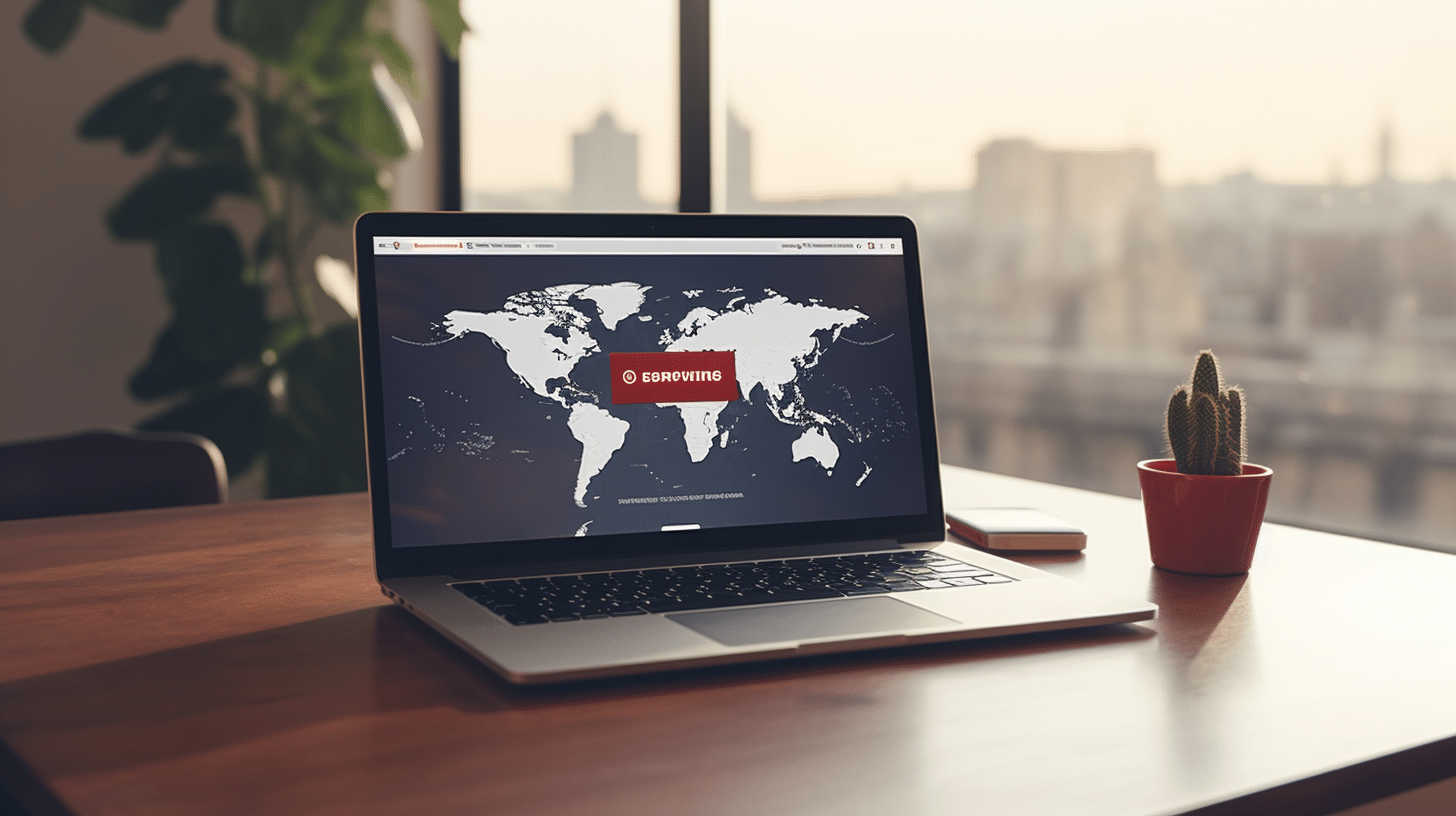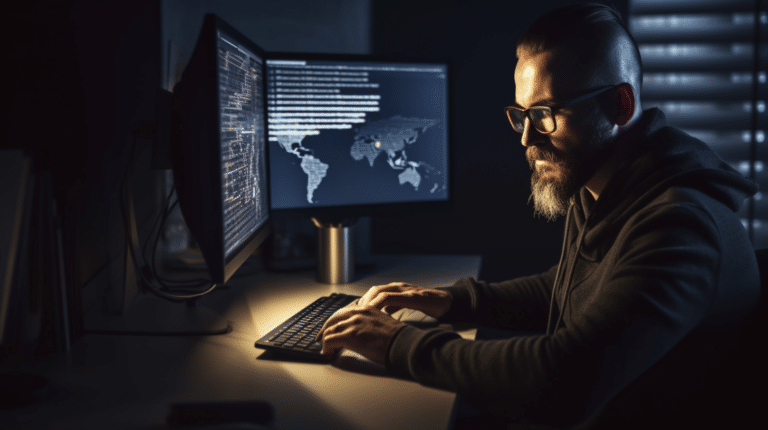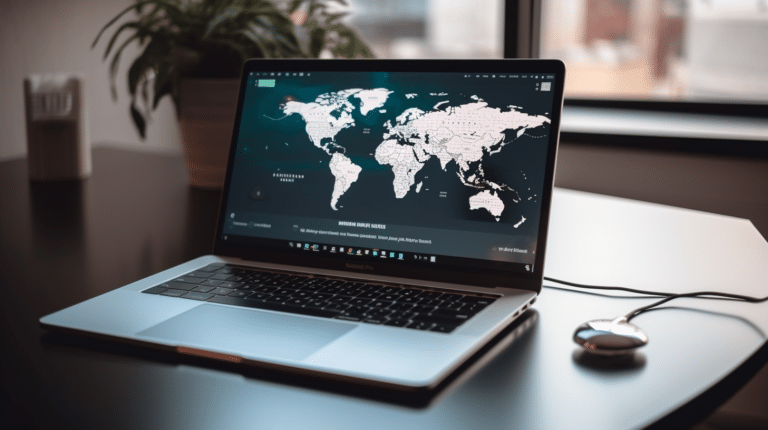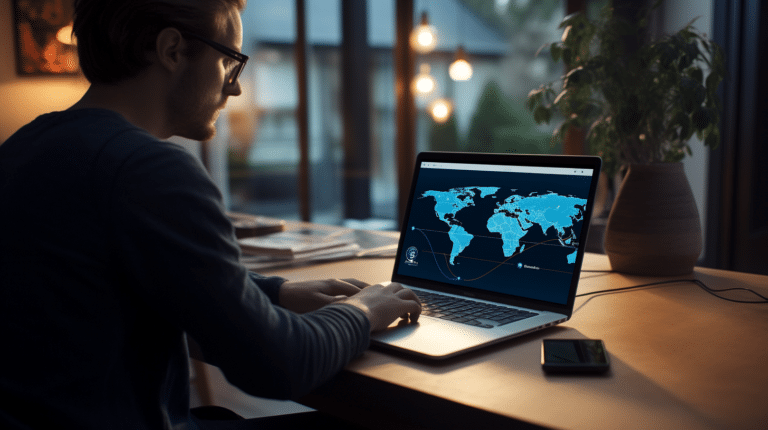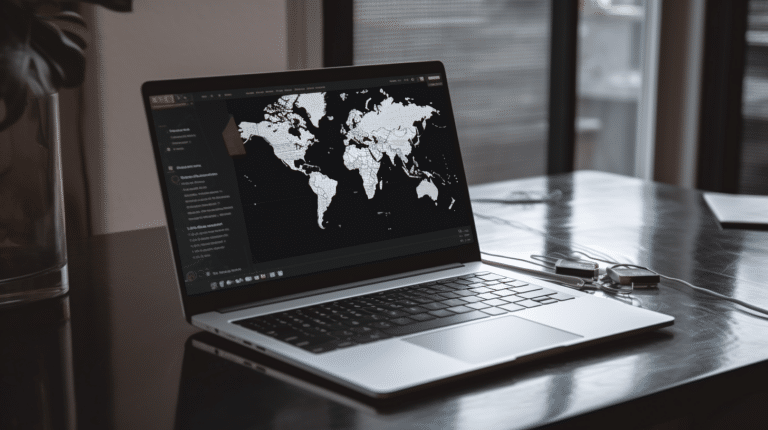Virtual Private Networks, or VPNs, are powerful tools that offer a range of benefits for users looking to safeguard their online privacy, enhance security, and access restricted content. By creating an encrypted connection between a user’s device and a remote server, VPNs effectively shield the user’s identity and internet traffic from prying eyes, enhancing their overall online experience.
The primary function of a VPN is to secure internet activity by encrypting data transmissions and preventing unauthorised access. Moreover, VPNs are invaluable tools for bypassing geographical restrictions on content, as they allow users to connect to servers in different locations, thereby granting access to region-locked websites and streaming services. As the use of VPNs continues to grow in popularity, it’s crucial to understand their limitations and carefully choose the right VPN for one’s specific needs to ensure a seamless and secure online experience.
Key Takeaways
- VPNs secure online activities by encrypting data, enhancing privacy, and protecting user identity.
- They enable access to restricted content by bypassing geographical restrictions and region-locked services.
- Choosing the right VPN is crucial for optimal performance, security, and user experience.
Understanding VPNs
A Virtual Private Network (VPN) is a technology that allows users to create secure, encrypted connections over public networks, such as the Internet. VPNs are primarily used to protect user privacy and enhance the security of their internet activities. They achieve this by creating a tunnel of encrypted data between the user’s device and a VPN server, which masks the user’s IP address and online activities from observation and interference by third parties.
VPNs serve as a crucial tool for enhancing online privacy and security by encrypting data, protecting sensitive information, bypassing geo-restrictions, and preventing ISPs from monitoring user activity. With a professional understanding of VPNs, users can confidently navigate the internet while protecting their privacy and ensuring the security of their information.
Protecting Privacy and Security
Bypass ISP Monitoring
Using a VPN can help you bypass ISP (Internet Service Provider) monitoring, as it encrypts your data and redirects it through a VPN server. This process prevents your ISP from seeing your online activities, providing a more secure and private browsing experience.
Secure Browsing on Public Wi-Fi
Public Wi-Fi networks can be vulnerable to hacking and other security risks. A VPN creates a secure connection between your device and the VPN server, encrypting your data and protecting it from eavesdropping or man-in-the-middle attacks. This ensures that your personal information remains safe, even on potentially unsecured public networks.
Anonymous Browsing
VPNs help you maintain anonymity online by masking your real IP address. When connected to a VPN server, your internet traffic appears to be coming from the server’s IP address, making it difficult for websites and third parties to identify your location or track your online activities. This added layer of privacy is particularly useful in countries with strict censorship or surveillance measures.
Blocking Advertisers and Trackers
Some VPNs include features that block advertisements and tracking cookies, protecting your online privacy. Advertisers and trackers use your browsing information to build a profile of your interests, which can then be used for targeted ads. A VPN disrupts this process by hiding your real IP address, making it more difficult for advertisers and trackers to monitor your online activities. Furthermore, with a VPN, you can bypass geo-restrictions, access blocked content, and maintain a more private, secure browsing experience.
Accessing Restricted Content
Bypass Geo-Restrictions
Virtual Private Networks (VPNs) are widely used to bypass geo-restrictions and access content that is unavailable or blocked in certain locations. By routing your internet traffic through a server in a different country, a VPN can mask your real IP address and make it appear as if you’re accessing the internet from that specific location. This allows users to access content that would otherwise be inaccessible due to regional restrictions imposed by content providers or governments.
For example, some websites and services are only available to users in specific countries, such as the BBC iPlayer being restricted to users in the United Kingdom. Using a VPN with a server located in the UK, a user from a different country can access the iPlayer by appearing to access it from the United Kingdom.
Unblocking Streaming Services
In addition to bypassing geographic restrictions, VPNs are also commonly used to unblock popular streaming services like Netflix, Hulu, and Amazon Prime Video. These platforms have different content libraries for different regions due to licensing agreements, which may leave some users unable to access certain movies or TV series.
By using a VPN, users can change their location and access the content libraries from different countries, effectively expanding the range of available shows and movies. However, it should be noted that some streaming providers work to detect and block VPN usage, which may limit the ability to access restricted content using a VPN.
Accessing Restricted Social Media
VPNs also play a significant role in accessing restricted social media platforms in countries with strict internet censorship or content filtering policies. Governments may block access to popular social media sites to prevent the spread of information and political dissent or to maintain control over their population’s online activities.
Using a VPN can help users bypass these restrictions by masking their IP address and routing their traffic through a server in a country where the social media platform is not blocked. This enables individuals in censored regions to access social networks, express opinions freely, and connect with friends and family members from around the world.
Guarding Sensitive Data
Preventing Data Leaks
VPNs, also known as Virtual Private Networks, are instrumental in protecting sensitive data. They create an encrypted tunnel between a user’s device and the VPN server, ensuring that data transmitted through this connection remains secure. As a result, a VPN can effectively shield your personal data from prying eyes who may be attempting to intercept or monitor your online activities.
Implementing a secured VPN can help prevent data leaks in various scenarios, such as when accessing the internet from public Wi-Fi networks. Since public networks can expose your sensitive information, using a VPN safeguards your data from malicious users who may be lurking on these networks.
Safeguarding Login Credentials
Aside from protecting your personal data during transit, VPNs also help keep login credentials secure. When you connect to a VPN server, your device’s IP address is masked with that of the VPN provider, making it more challenging for hackers or online trackers to associate your online activity with your personal identity.
Moreover, VPN services usually implement robust encryption algorithms and security protocols such as IPsec or OpenVPN. These security mechanisms ensure your sensitive data, including login credentials, remain encrypted and protected from unauthorized access.
In conclusion, using a VPN not only secures your sensitive data but also shields your login credentials and personal information from prying eyes. Employing a reliable VPN provider is a crucial step in maintaining privacy and security in the digital world.
Enhancing Online Experience
Improved Gaming Experience
Using a Virtual Private Network (VPN) can greatly enhance your gaming experience. By connecting to VPN servers with faster connection speeds, you can potentially reduce lag and latency, which are crucial factors in online gaming. VPNs allow you to connect to a wide range of servers in multiple countries, providing you with the possibility to find the fastest server for your specific game.
Moreover, with a VPN, you can securely access games that might be restricted in your region. This means that you are no longer limited by geographical borders and can play games that were previously inaccessible due to regional restrictions.
Safe Torrenting
VPNs also play a vital role in the world of torrenting. Many people use BitTorrent to download and share files, but this process may expose your IP address and personal information to potential cyber threats. A VPN encrypts your internet connection, hiding your real IP address and providing you with an additional layer of security.
With a VPN, you can download torrents anonymously, preventing internet service providers (ISPs) or copyright holders from tracking your activity. Additionally, VPNs can help you bypass ISP throttling, which may occur when downloading large files or engaging in high bandwidth usage activities like torrenting.
In summary, using a VPN can significantly enhance your online experience by improving your gaming performance, providing safe torrenting options, and giving you access to geographically restricted content.
Choosing the Right VPN
Selecting the appropriate VPN for your specific needs can be a challenging task. Understanding the important features to consider and comparing popular VPN providers will help you make an informed decision.
Important Features to Consider
There are several key factors to consider when choosing a VPN:
- Security: Ensure that the VPN utilizes strong encryption protocols, such as IPSec, to protect your data from unauthorized access.
- Privacy: Consider whether the VPN provider has a strict no-logs policy to guarantee that your online activities remain private.
- Supported platforms: Make sure the VPN is compatible with the devices you intend to use it on.
- Server locations: A larger number of server locations ensures that you can access content from various regions.
- Price: Consider the subscription costs and any available free trials or money-back guarantees.
- Efficiency: Compare VPN providers based on their connection speed, as this can have a significant impact on your browsing experience.
Popular VPN Providers
Two of the most well-known VPN providers in the market are NordVPN and ExpressVPN. Here is a brief comparison of these providers to help you choose the right VPN:
- NordVPN: Widely praised for its security features, NordVPN provides robust encryption and CyberSec technology to block ads and malware. With more than 5,000 servers across 60 countries, NordVPN offers a variety of server options and supports various devices and platforms. It employs a strict no-logs policy, ensuring user privacy, and offers a 30-day money-back guarantee. NordVPN also has an affordable pricing structure, with available discounts for long-term plans.
- ExpressVPN: Known for its impressive speeds, ExpressVPN is an excellent option for users who prioritize fast connection times. It offers a global network of 3,000+ servers in over 94 countries, supports a wide range of devices and platforms, and boasts a no-logs policy. ExpressVPN also provides a user-friendly VPN app for a seamless experience and a 30-day money-back guarantee. The pricing is slightly higher compared to NordVPN, but the speed performance may justify the cost.
Choosing the right VPN requires balancing your priorities with the services provided by each option. Carefully consider the important features outlined above and explore the offerings of popular providers like NordVPN and ExpressVPN to make an informed decision.
VPN Limitations and Concerns
Impact on Speed and Performance
One common concern with VPN usage is the potential impact on speed and performance. Since VPNs encrypt and route traffic through different servers, it can sometimes result in slower connection speeds. Factors like server location, server load, and encryption levels can all play a role in the degree of speed reduction experienced. Internet service providers (ISPs) might also impose bandwidth limitations or other restrictions on users of VPNs, which could further impact overall performance.
Legal Implications
Another consideration when using VPNs is the legal implications. While VPNs are generally legal in most countries, there are some government regulations and tracking policies that affect their usage. VPNs can be used to bypass internet censorship, which could lead to consequences if detected by authorities. Additionally, some countries have stringent monitoring of internet activities, making the use of VPNs potentially more risky.
The cost of deploying VPNs can also be a concern for both individuals and organizations. Some popular VPN service providers offer free versions, but these may come with limitations such as reduced available bandwidth or a restricted selection of server locations. Premium VPN services can offer increased privacy and security but at a potentially increased financial expense.
In conclusion, it is essential to weigh the benefits of using VPNs against the potential limitations and concerns, such as the impact on speed and performance, legal implications, and costs, to ensure that the chosen service effectively meets user needs and expectations.
Frequently Asked Questions
How does a VPN enhance online privacy?
A VPN, or Virtual Private Network, enhances online privacy by encrypting your internet connection and routing it through a server located elsewhere. This process masks your IP (Internet Protocol) address, making it harder for others to track your online activities and access personal information. A VPN also helps to protect your data from potential interception by cybercriminals or government surveillance agencies.
What are the benefits of using a VPN at home?
Using a VPN at home can help to protect sensitive data or maintain privacy while surfing the internet. Some benefits of using a VPN at home include:
- Protecting personal information while connecting to public Wi-Fi networks or using shared computers.
- Accessing geo-restricted content, such as streaming services or news websites that are not available in your region.
- Bypassing ISP (Internet Service Provider) throttling, which can improve the quality of streaming or gaming experiences.
- Enhancing privacy by hiding your online activities from ISPs, advertisers, and other third parties.
Which VPN is best for mobile devices?
To evaluate which VPN is best for mobile devices, consider factors such as ease of use, reliability, security features, and compatibility with your device’s operating system. You can find reviews and comparisons of mobile VPNs online to help you make an informed decision. Some popular VPN providers offer dedicated apps specifically designed for mobile devices, ensuring a seamless and user-friendly experience.
Can a VPN improve internet security?
A VPN can improve internet security by providing an encrypted connection between your device and the internet, which helps protect your data from being intercepted or tampered with by hackers. However, using a VPN is not a guaranteed solution for all online threats. It’s essential to take additional precautions, such as using strong, unique passwords, keeping your software up to date, and only visiting trustworthy websites.
What are the steps to set up a VPN?
Setting up a VPN typically involves the following steps:
- Choose a reputable VPN provider. Research various providers to determine which one meets your needs in terms of security, privacy, and reliability.
- Sign up for a subscription plan with your chosen provider.
- Download and install the VPN client software on your device. Most providers offer dedicated apps for different devices and operating systems.
- Log in to the VPN client using your account credentials.
- Choose a server location and connect to it. Once connected, your internet traffic will appear to originate from that location, and your connection will be encrypted.
- Browse the internet securely and privately with your VPN connection active.
How does a VPN affect internet speed?
Using a VPN may affect internet speed due to factors such as encryption, server location, and network congestion. Encrypting your internet traffic takes some processing power, which can result in slower connection speeds, especially on slower devices or networks. Additionally, connecting to VPN servers located far from your physical location can introduce latency, which may reduce the speed of internet services that require real-time responses, such as gaming or video calling. However, choosing a reliable VPN provider offering a range of server locations and robust infrastructure can help minimize potential impacts on internet speed.
